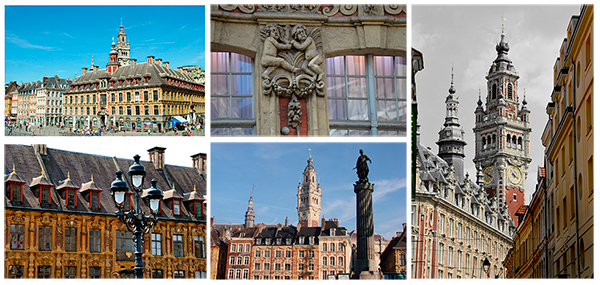Geographical Location, Lille Capital of Flandres


[Credit: Polytech Lille]
Lille is an exceptional cosmopolitan city in the northern part of France within French Flanders. It plays a leading role as Europe’s political centre and hosts many international organisation
On the river Deûle, nearby France's border with Belgium, it is the capital of the Hauts-de-France region, the prefecture of the Nord department, and the main city of the European Metropolis of Lille. Nicknamed in France the "Capital of Flanders", Lille and its surroundings belong to the historical region of Romance Flanders, a former territory of the county of Flanders that is not part of the linguistic area of West Flanders. A garrison town (as evidenced by its Citadel), Lille has had an eventful history from the Middle Ages to the French Revolution. Lille is an important junction in the European high-speed rail network. It lies on the Eurostar line to London (80-minute journey). The French TGV network also puts it only 1 hour from Paris and 38 minutes from Brussels and connects it to other major centres in France such as Marseille, Lyon and Toulouse. Lille has two railway stations next to each other: Lille-Europe station (Gare de Lille-Europe), which primarily serves high-speed trains and international services (Eurostar), and Lille-Flandres station (Gare de Lille-Flandres), which primarily serves lower-speed regional trains and regional Belgian trains. With roots from 1562 to 1793 as University of Douai (as Université Impériale in 1808) the State University of Lille was established in Lille in 1854 with Louis Pasteur as the first dean of its Faculty of Sciences. A school of medicine and an engineering school were also established in Lille in 1854 and the University of Lille was united as the association of existing public Faculties in 1896. It was then split into three independent university campuses in 1970, and now has administratively became one, unique University of Lille. Lille, Flanders and its University are major historical centers of France and North Europe; backgrounds and heritage, now exposed to global stimuli, have continued to flourish to this day. From historical and historiographical standpoints, this also allows rethinking new approaches to investigate intellectual and foundational histories––&––styles of knowledge, networks and relationships between scientific disciplines of the past. [Adapted-Credit: https://en.wikipedia.org/wiki/Lille ]
|


